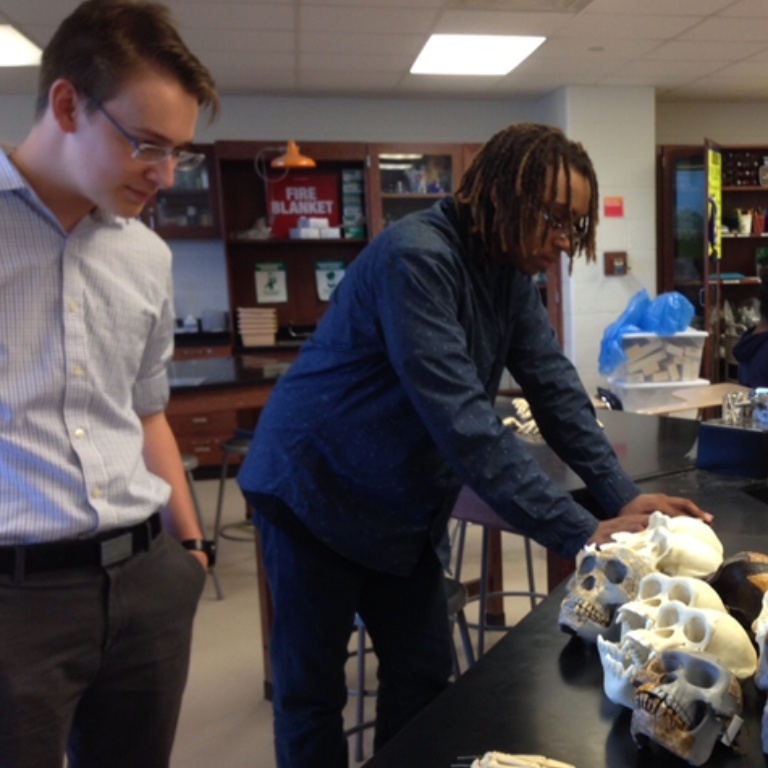Indiana University Bloomington biology professor and department chair Armin Moczek and Bloomington High School South science teacher Kirstin Milks have collaborated for nearly 15 years to support STEM education in the Bloomington community.
They have focused on developing teaching units, called modules, that align with the Indiana Science Teaching Standards. These modules address curricular needs and model 21st-century best practices in STEM education.
Their most recent efforts focused on teaching human evolution, have caught the attention of the National Center for Science Education, a nonprofit that opposes creationism in classrooms and provides curricular resources for teachers.
“Human evolution is a topic that can be contentious in the classroom,” Moczek said. “It’s also a field that has grown rapidly in knowledge — far outpacing what is covered in standard textbooks.”
Teaching human evolution requires nuance and care, Moczek said, because it relies on observational data to make inferences about events that occurred hundreds of thousands or even millions of years ago. “At the same time, it is an opportunity to confront something deeply personal — our history, how we came to be, and who we are today.”
Over the past decade, Moczek and Milks have developed a teaching unit titled “Reconstructing 6 Million Years of Human Evolution Using Diverse Data Sets.” The module enables students to reconstruct the last 6 million years of human evolution in a single 50- to 70-minute lesson, regardless of their prior knowledge of the subject.
Students learn about the sequence of events that shaped modern humans, the circumstances under which these changes evolved, and how climate and habitat shifts influenced evolutionary developments. The module also introduces students to the data scientists use to draw conclusions, explores alternative interpretations, and outlines where current knowledge ends.
Moczek and Milks first presented the module at several teacher training workshops offered through the WonderLab Museum of Science, Health, and Technology in Bloomington. Then, after testing it in over a hundred classrooms locally and regionally and refining it in the process, they showcased the module at the National Association of Biology Teachers annual meetings in Chicago and Indianapolis. There, they connected with the leadership of the National Center for Science Education.
The center is now incorporating the module into its curriculum, which is distributed nationwide. Moczek and Milks are assisting with this effort by training teachers in workshops and through one-on-one mentoring across the country.
“The best part of this module is that it’s so engaging for learners of all ages and backgrounds while supporting rigorous thinking based on real-world data,” Milks said. “Our team has taught this lesson to elementary schoolers, retirement home residents, and incarcerated people at the Monroe County Jail. In all of these settings, students not only succeed but ask excellent questions as well. ”
A corresponding publication detailing the module will appear in the February issue of American Biology Teacher, published by the National Association of Biology Teachers, in honor of Darwin Day.
Charles Darwin’s birthday, Feb. 12, is recognized as National Darwin Day to commemorate Darwin and his theory of evolution by means of natural selection.

 The College of Arts
The College of Arts